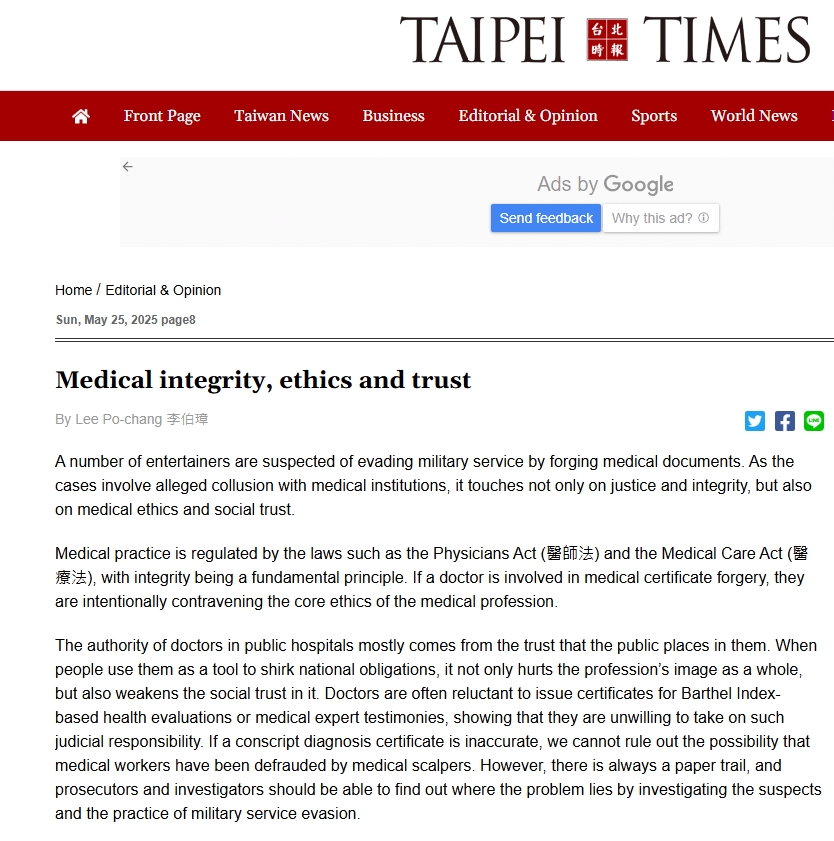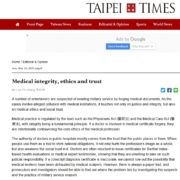【Column article】Taipei Times “Lee Po-Chang’s Column|Medical integrity, ethics and trust”

Medical integrity, ethics and trust
-
By Lee Po-chang 李伯璋
A number of entertainers are suspected of evading military service by forging medical documents. As the cases involve alleged collusion with medical institutions, it touches not only on justice and integrity, but also on medical ethics and social trust.
Medical practice is regulated by the laws such as the Physicians Act (醫師法) and the Medical Care Act (醫療法), with integrity being a fundamental principle. If a doctor is involved in medical certificate forgery, they are intentionally contravening the core ethics of the medical profession.
The authority of doctors in public hospitals mostly comes from the trust that the public places in them. When people use them as a tool to shirk national obligations, it not only hurts the profession’s image as a whole, but also weakens the social trust in it. Doctors are often reluctant to issue certificates for Barthel Index-based health evaluations or medical expert testimonies, showing that they are unwilling to take on such judicial responsibility. If a conscript diagnosis certificate is inaccurate, we cannot rule out the possibility that medical workers have been defrauded by medical scalpers. However, there is always a paper trail, and prosecutors and investigators should be able to find out where the problem lies by investigating the suspects and the practice of military service evasion.
According to Article 5 of the Punishment Act for Violation to Military Service System (妨害兵役治罪條例), a person trying to evade general mobilization or temporary mobilization by fabricating a reason for an exemption, suspension, transfer or postponement of service, as well as for random mobilization or late mobilization, would be sentenced to no more than five years of imprisonment. The Criminal Code’s punishments for offenses of document forgery and related laws would also be applicable.
In other words, if a doctor intentionally issues a false diagnosis certificate, causing the military service unit to misclassify a conscript, he would be committing a criminal offense and be held liable. Were any medical workers willing to take the risk? This still remains to be investigated. If they were, it might be necessary to review how society views integrity.
We teach children to be honest and social education is an important link in this. While we respect students’ free development, the government should take responsibility in promoting “integrity education” in society.
Recently, a Taiwanese obstetrician-gynecologist sexually assaulted a patient while performing a “pelvic examination.” Although the court imposed a penalty on him, government agencies are failing to respond to the demands and expectations of the public in a timely manner. As more time passes, during the second and third trial of criminal cases, lawyers may find excuses to argue that the judicial procedures were flawed or that the evidence was doubtful. In the end, criminals often receive a lighter penalty after this process, which makes the public unable to trust judicial justice.
Lee Po-chang is a chair professor at Taipei Medical University’s College of Public Health.
Translated by Eddy Chang
Original article source:https://pse.is/7mmd8v



